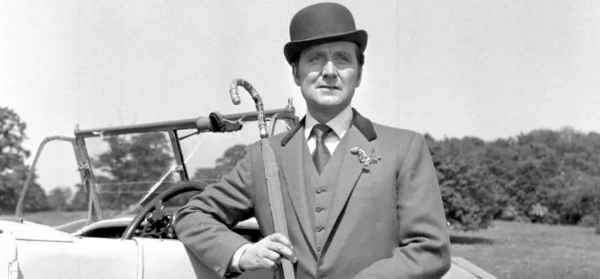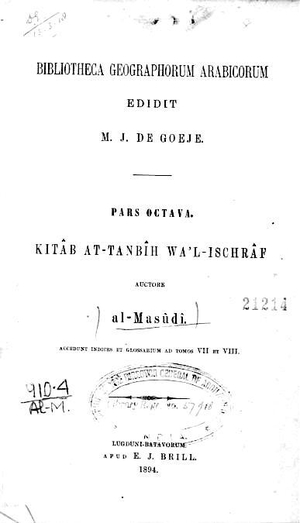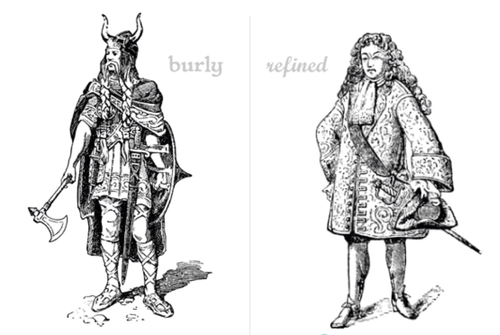Tourists tend to have stereotypes about national character – the English are snobs, French people stylish, Germans serious, and Italians joyous, or some variations on that list. More interestingly, deep thinkers also have much to say on this topic, sometimes writing weighty tomes on the matter. Have historians, sociologists, and anthropologists of Europe reached a consensus on those national characters? What about their nearest neighbors in the Middle East? A survey finds utter chaos.
The English, to quote my own review of distinguished authors such as David Hume, Ralph Waldo Emerson, and George Orwell, are simultaneously held to be "serene and moody; brotherly and conceited; fair and greedy; haughty and deferential; hypocritical and noble; stolid and humorous." In short, the combined wisdom of "groaning shelves of books and articles on the English national character, many written by distinguished figures ... amounts to a massive contradiction."[1]
 What Britons look like? |
The French have a reputation for cold logic and mathematical precision. Others call the French vain, passionately amorous, and full of joie de vivre. Oddly, William McDougall, who studied with C. G. Jung and taught at Harvard, finds their "sociability and sympathetic character" causes France to be centrally organized.[2] Beyond such details, the great short story writer Guy de Maupassant dwelt on – of all things – the mustache. This he found "French, altogether French. It came from our ancestors, the Gauls, and has remained the insignia of our national character."[3] Make what you will of that.
 The typical German? |
Italians may have a global reputation for being expressive, emotional, and artistic, but the grandest historian of ancient Rome, Theodor Mommsen, memorably pronounced them, whether ancient, medieval, or modern, to be "deficient in the passion of the heart, and in the longing to idealize what is human and to give life to the things of the inanimate world, which form the very essence of poetic art. ... in the more perfect kinds of art they have hardly advanced beyond cleverness of execution, and no epoch of their literature has produced a true epos or a genuine drama."[6] Contrarily, Scottish philosopher David Hume saw enormous change in Italians: "Candour, bravery, and love of liberty, formed the character of the ancient Romans, as subtilty, cowardice, and a slavish disposition, do that of the modern." He judged Greeks similarly: "The ingenuity, industry, and activity of the ancient Greeks, have nothing in common with the stupidity and indolence of the present inhabitants of those regions."[7]
Comparisons between nationalities are yet more haphazard. Take the British and French. The great French novelist Honoré de Balzac proclaimed about 1840 that "the Frenchman is frivolous, ... as the Englishman is noble."[8]William MacNeile Dixon, professor of English and literature and the University of Glasgow, deemed the British thinking in 1915 not "so lucidly and logically" as the French.[9] Morris Ginsburg, a leading sociologist, found the British less articulate than the French.[10] Salvador de Madariaga, an eminent Spanish writer discovered in 1928 the core elements of national character: fair play in England and le droit (law) in France, from which he concluded that the English are men of action, the French men of thought.[11]
 Al-Mas'udi, Kitab at-Tanbih wa'l-Ashraf, ed. M.J. de Goeje (Leiden: Brill, 1894). |
Their humors have little warmth, their bodies are extended, their characters are dried out, their morals rough, their comprehension weak, and their tongues heavy. Their pallor is so extreme that they appear bluish. Their skin is delicate, their hair thick. Their eyes are also blue, matching their complexions. Humid vapors make their hair lank and reddish-brown. Their religions lack substance due to the nature of the cold and the lack of warmth. Those who live in the far north are the most stupid, useless and bestial; and these characteristics increase yet more the further one goes north.[12]
Three hundred years, the Franks' reputation had sunk yet lower. Ibn Sa'id al-Maghribi found the Franks
resembling animals more than men. ... The cold air and cloudy skies [cause] their temperaments to become frozen and their humors to become crude; their bellies are extended, their coloring pale, and their hair too long, They lack keenness of understanding and acuteness of mind, they are dominated by ignorance and stupidity, and blindness of purpose is widespread.[13]
Middle Easterners continue to view Europeans negatively, if more respectfully. The influential Syrian intellectual 'Abd ar-Rahman al-Kawakibi wrote in 1899:
Western man is a hard-headed materialist. He is fierce to deal with, he is by nature inclined to exploit others, and is ever ready to revenge himself on his enemies. He has lost the last trace of feeling and charity which Christianity bestowed upon him.
Within Europe, Kawakibi distinguished between the Teutonic (which includes the Anglo-Saxon) who is "naturally tough. He regards the weak with disdain, as unworthy of existing. He considers force man's highest virtue." The Latin, in contrast, "is of mercurial character. Reason to him means overstepping limits; his life has little modesty in it; honor exhibits itself in gaudy apparel."[14]
 One vision of the Teutonic (L) vs. the Latin. |
An Ottoman jingle held that "The Englishman is irreligious, the Frenchman soulless, the Hungarian inauspicious, the Russian perverse, the German merciless."[15] Modern Turks might casually refer to "the plotting Greek character."[16] The Iranian economist Jahangir Amuzegar characterized the French "as querulous, talkative, rational, snobbish, elitist; the Germans as orderly, disciplined, productive; the British as cold, crafty, self-controlled, deferential; the Russians as friendly, warm, tractable, patient, emotional."[17]
With this, we take leave of national character, possibly more confused than before embarking on it. Until now, descriptions of national character have proven as useless as they are contradictory. That still leaves open, however, the unfulfilled science of national character such as proposed by the liberal philosopher John Stuart Mill who in 1872 sought a discipline he called "Political ethology, or the science of national character."[18]
Mr. Pipes (DanielPipes.org, @DanielPipes) is president of the Middle East Forum. © 2022 by Daniel Pipes. All rights reserved.
[1] Daniel Pipes, "An American in Search of the English National Character," Critic, 23 January 2021.
[2] William McDougall, The Group Mind: A Sketch of the Principles of Collective Psychology with Some Attempt to Apply Them to the Interpretation of National Life and Character (New York: G.P. Putnam's Sons, 1920), p. 307.
[3] Guy de Maupassant, "The Mustache," The Miromesnil Edition of Guy de Maupassant, Monsieur Parent, Queen Hortense, Fascination, and Other Stories (n.p., P.F. Collier and Son, 1910), p. 4.
[4] Otto Pfleiderer, "The National Traits of the Germans as Seen in Their Religion," International Journal of Ethics 3 (1892‑93): 19.
[5] F.J.C. Hearnshaw, Germany the Aggressor Throughout the Ages (London: W&R Chambers, 1940), p. 271.
[6] Theodor Mommsen, The History of Rome, translated by William Purdie Dickson, book 1, p. 291.
[7] David Hume, "Of National Characters," The Philosophical Works (Edinburgh: Black and Tait, 1826,), vol. 3, p. 233.
[8] Honoré de Balzac, Illusions perdues (Paris: Club français du livre, 1962), vol. 4, p. 1067.
[9] W. MacNeile Dixon, Poetry and National Character (Cambridge, Eng.: At the University Press, 1915), p. 38.
[10] M. Ginsberg, "National Character," British Journal of Psychology 32 (1942): 188.
[11] Salvador de Madariaga, Englishmen, Frenchmen, Spaniards: An Essay in Comparative Psychology (London: Oxford University Press, 1928), pp. 1-8. Madariaga's book is perhaps the most rigidly structured of any essay on national character and also the most charming.
[12] Al-Mas'udi, Kitab at-Tanbih wa'l-Ashraf, ed. M.J. de Goeje (Leiden: Brill, 1894), pp. 23-24.
[13] Ibn Sa'id, Kitab Tabaqat al-Umam, ed. Louis Cheikho (Beirut: Imprimerie Catholique, 1912), pp. 8-9.
[14] 'Abd ar-Rahman al-Kawakibi, Taba'i' al-Istibdad wa Masari' al-Isti'bad (Cairo, 1899), p. 79. Quoted in Hisham Sharabi, Arab Intellectuals and the West: The Formative Years, 1875-1914 (Baltimore: Johns Hopkins Press, 1971), p. 98.
[15] It rhymes in Turkish: "Ingiliz dinisiz, Fransïz jansïz, Engerus menhus, Rus ma'kus, Alman biaman." Quoted in Bernard Lewis, The Muslim Discovery of Europe (New York: W. W. Norton, 1982), p. 174.
[16] The Turkish Times, 1 November 1991.
[17] Jahangir Amuzegar, The Dynamics of the Iranian Revolution: The Pahlavis Triumph and Tragedy (Albany, N.Y.: State University of New York Press, 1991), pp. 99-100.
[18] John Stuart Mill, The Logic of the Moral Sciences (Mineola, N.Y.: Dover, 2020), p. 71. First published in 1872.
